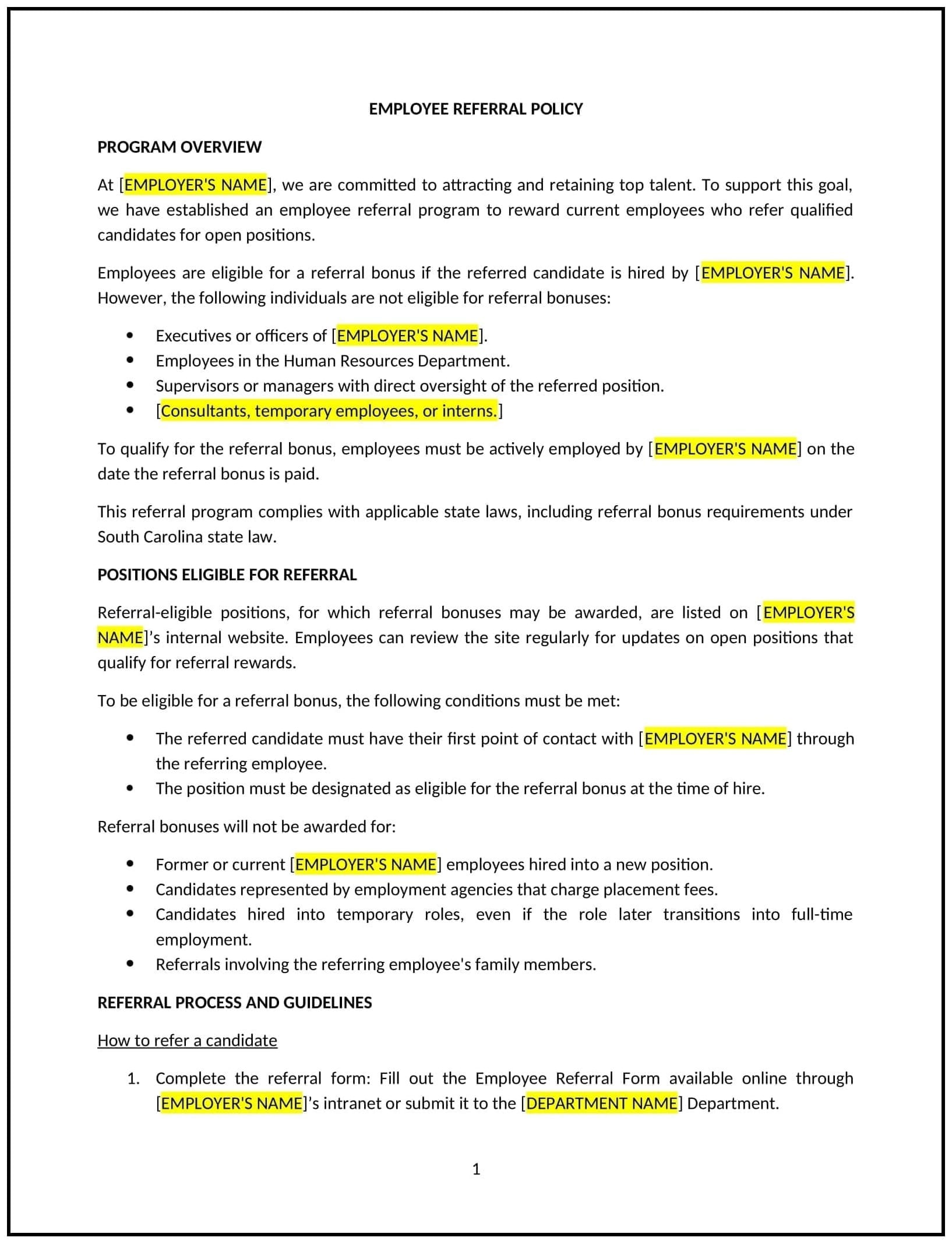Employee referral policy (South Carolina): Free template
Got contracts to review? While you're here for policies, let Cobrief make contract review effortless—start your free review now.

Customize this template for free
Employee referral policy (South Carolina)
This employee referral policy is designed to help South Carolina businesses establish guidelines for employees to refer qualified candidates for open positions. It outlines procedures for submitting referrals, eligibility criteria, and rewards for successful hires.
By adopting this policy, businesses can leverage their existing workforce to attract top talent, reduce recruitment costs, and align with general best practices for hiring.
How to use this employee referral policy (South Carolina)
- Define referral process: Explain how employees can submit referrals, such as through an online portal or HR department.
- Establish eligibility criteria: Specify which positions are eligible for referrals and any restrictions, such as excluding family members.
- Set reward structure: Outline the rewards for successful referrals, such as cash bonuses, gift cards, or additional paid time off.
- Communicate timelines: Provide details on when rewards will be distributed, such as after the referred employee completes a probationary period.
- Train employees: Educate staff on the policy and their responsibilities for submitting referrals.
- Review and update: Assess the policy annually to ensure it aligns with evolving business needs and hiring goals.
Benefits of using this employee referral policy (South Carolina)
This policy offers several advantages for South Carolina businesses:
- Attracts top talent: Leverages employees’ networks to identify qualified candidates who may not be reached through traditional recruitment methods.
- Reduces recruitment costs: Lowers expenses associated with job postings, recruitment agencies, and candidate screening.
- Enhances employee engagement: Encourages employees to participate in the hiring process and contribute to the company’s success.
- Aligns with best practices: Provides a structured approach to managing employee referrals.
- Improves retention: Increases the likelihood of hiring candidates who are a good cultural fit and more likely to stay with the company long-term.
Tips for using this employee referral policy (South Carolina)
- Communicate the policy: Share the policy with employees and include it in the employee handbook.
- Provide training: Educate staff on the policy and their responsibilities for submitting referrals.
- Monitor adherence: Regularly review referral submissions to ensure compliance with the policy.
- Address issues promptly: Take corrective action if referrals are mishandled or rewards are delayed.
- Update regularly: Assess the policy annually to ensure it aligns with evolving business needs and hiring goals.